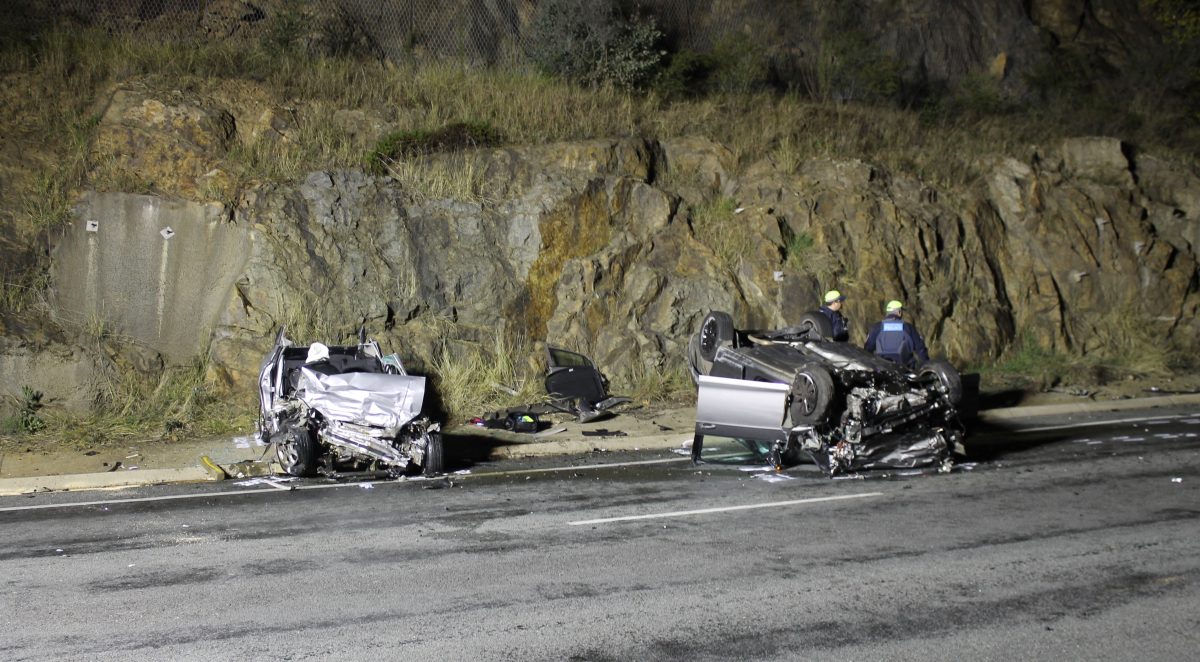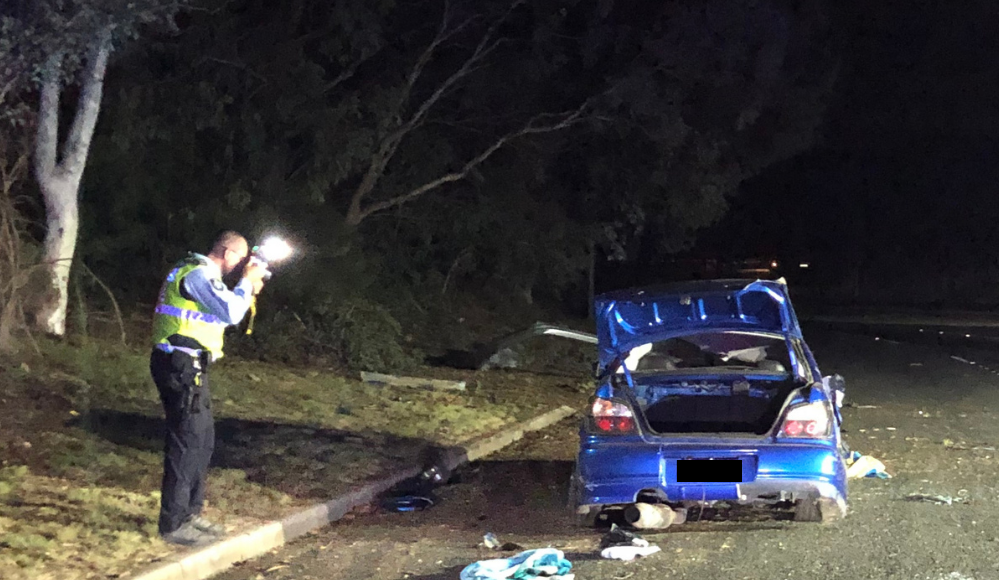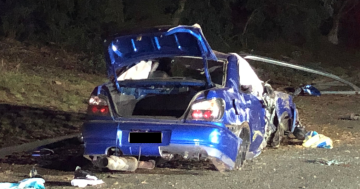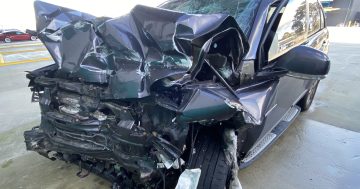
Matthew McLuckie was killed in a head-on crash on Hindmarsh Drive on 19 May. Photo: ACT Policing.
A new committee inquiry has been launched into dangerous driving in the ACT, with road safety advocates welcoming the step towards potential reform.
The inquiry would examine and report on a range of dangerous-driving responses, including from police (both prevention and post-crash), the criminal justice system, legislated punishments for dangerous-driving offences (including prison sentences, fines and vehicle sanctions) and corrections responses.
Standing Committee chair and Liberal MLA Peter Cain said he was pleased this “important community safety issue” had been referred for an inquiry.
“I’m looking forward to this opportunity to assess and address dangerous driving in the ACT and hopefully produce outcomes that will save lives,” he said.
“We look forward to hearing from as many people as possible about the key issues, and on possible strategies that the Government can put in place to address dangerous driving through police and emergency response and through the justice system.”
Mr Cain said the committee was aware of deaths on Canberra’s roads that were the result of dangerous driving and acknowledged their families’ concerns over sentencing.
“I implore all Canberrans who are concerned with the prevalence of dangerous driving in the ACT to make a submission to the inquiry by 30 September,” he said.
One such family member was Tom McLuckie, whose son Matthew was killed by a speeding driver who was on the wrong side of the road on 19 May.
Now a road safety advocate, Mr McLuckie welcomed the inquiry to capture the “sentiment, experiences and frustration” in the community over reckless driving and motor vehicle crime.
However, he believed the inquiry was only necessary due to “failures over many years” to address dangerous driving.
“Matthew’s death was an accident waiting to happen, and it is just sheer luck when you look at the recent offences that more people have not been killed on our roads,” Mr McLuckie said.
“Leniency in sentencing has been an issue in Canberra for a long time and the minimal deterrent for serious motor vehicle crime, the revolving door of repeat offenders playing the system, is part of why we are looking at the inquiry now.”
Mr McLuckie felt an inquiry implied there were wider issues and failures in multiple areas that needed to be addressed.
“Frustratingly, when you see individuals on good behaviour orders, suspended sentences, parole and bail being responsible for a lot of these crimes you have to question the competency of the justice system,” he said.
An inquiry could take some time to create change, and Mr McLuckie pleaded for more to be done now.
“I hope for all our sakes this is not a one-to-two-year process to bring about effective change,” he said.
“We need to treat the revolving door and apply appropriate deterrent and penalties … our sentencing, education, corrective services and rehabilitation are all in the mix.
“The problem is clearly evident and we need action now.”

A man was killed in a single-vehicle incident in Melba on 20 May. Photo: ACT Policing.
The Australian Federal Police Association (AFPA) hoped the inquiry would spur a review into sentencing and bail in the ACT.
The union called for this last month, a move shut down by Attorney-General Shane Rattenbury.
“We believe that this inquiry is the first step in a holistic review of sentencing and bail in the ACT,” AFPA president Alex Caruana said.
“Recidivist offending is problematic in the ACT and needs to be addressed.
“At some point the judiciary must put the human rights and welfare of the community above people that continuously reoffend. Unfortunately, I also believe it is fair to say that recent sentencing and bail haven’t met community expectations.”
He also acknowledged the ACT Government had been reviewing driving offences for the past 12 months, but said the outcome still wasn’t known.
“I think the community would be gobsmacked if they knew the current maximum penalty for street racing is 20 penalty units ($3200), and the possibility for licence suspension if convicted,” Mr Caruana said.
“In our mind, this is an appalling penalty for such a serious offence that could have fatal consequences. This inquiry will allow us to propose legislative amendments to address issues like this.”
A policy review was different to a judicial review, which referred to court proceedings to challenge decisions of government officials.
Mr Rattenbury stood by his comments a wholesale review of the system was not needed, but welcomed an examination of road safety outcomes.
“In the case of dangerous-driving offences, I am open to finding ways to prevent dangerous-driving behaviours,” he said.
“I have already requested the Justice and Community Safety Directorate provide me with advice on a number of questions relating to repeat offenders.”
The community could make submissions to the inquiry until 30 September.





















